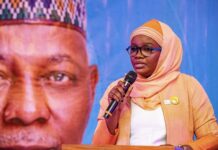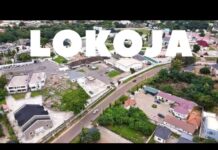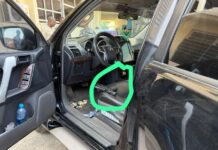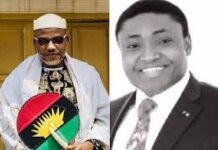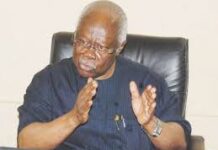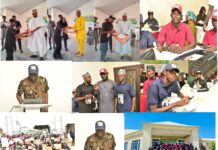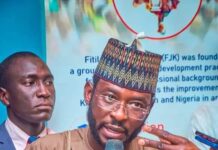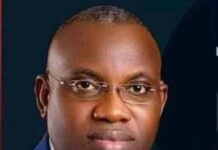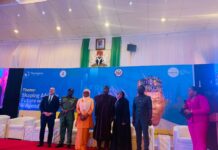PDP: A Tale Of 3 Congresses
POLITICS DIGEST – The Peoples Democratic Party (PDP) held three congresses recently but they all did not turn out as planned. CHIBUZO UKAIBE delves into the intrigues that characterised the exercises.
The Peoples Democratic Party (PDP) recently held congresses in North Central, North West and South West which could be likened to the good, the bad and not so ugly.
While the process was smooth in the North Central, there was a major blowout in the North West among members of opposing camps. In the South West, it was an anti-climax, a contrast from a much-anticipated implosion of the party in the zone.
The contest in the South West had captured the imagination of party faithful perhaps as the two key actors in the fractious tussle for party leadership in the region, Oyo State governor Seyi Makinde and ex-Ekiti State governor Ayo Fayose, had gone at it for a while, forcing the party to postpone the congress three times.
However, on D-day, Taofeek Arapaja, backed by Makinde, scored 343 votes to emerge the national vice-chairman of the party while the immediate past national vice-chairman and candidate of Fayose, Eddy Olafeso, scored 330 votes.
Although Fayose questioned the transparency of the congress he seems to have resigned to the reality that the Oyo State governor now has a grip on the party strcuture in the region.
The build up to the North Central Congress also produced flashes of concern what with the battle for control of Niger State PDP. The tussle was largely between ex-governor Babangida Aliyu and his estranged god-son and national financial secretary, Abdullahi Maibasira.
But the return of a PDP founding member and former minister of information, Prof Jerry Gana, seemed to signal a less rancourous congress as was eventually witnessed.
The contestants returned unopposed as the consensus arrangement reached by party leaders paid off. Zonal Chairman, Theophilus Shan; Zonal Secretary, Maurice Tsav; Zonal Treasurer, Emmanuel Ibrahim; Publicity Secretary, Mohamed Suleiman and 21 others.
But many were taken aback by the outcome of the congress in the North West. For a zone that boasts of having some of the most experienced PDP politicians, not many thought that the congress would end in utter chaos, even though the split in some state chapters had remained unresolved going into the contest.
In Kano State, the battle between former governor Rabiu Kwankwaso and former Ambassador Aminu Wali, festered despite interventions. The tussle which contributed to the party’s loss in 2019 governorship election in the state had escalated during the local government polls in the state, where Wali’s faction participated in the exercise as against the refusal of Kwankwaso’s camp to legitimise the process by abstaining.
In Jigawa State, former governor, Sule Lamido and former PDP governorship candidate in the state, Aminu Ibrahim, had fallen out leading to an explusion battle of sorts. While Lamido’s camp expelled Ibrahim, the latter’s group replied with Lamido’s expulsion.
As these camps battled in their states, the Sokoto State governor and chairman of the PDP Governors Forum, Hon Aminu Tambuwal was also desirous of expanding his influence in the region against the backdrop of his perceived presidential ambition in 2023.
With tensions already high, on congress day in Kaduna, a clash of forces occurred, just as the election began. Ballot boxes were destroyed.
The major contenders for the position of national vice chairman for North West zone are Senator Bello Gwarzo who is supported by Wali and Muhammad Yusuf who is supported by Kwankwaso. LEADERSHIP however gathered that a battle between loyalists of Tambuwal and Kwankwaso, whose alleged presidential ambition is also rife, escalated the chaos during the congress.
Despite the set back in the North West, the party’s national leadership believes the outcome of the process in the other two regions, holds promise for the party in 2023.
The national publicity secretary of PDP, Kola Ologbondiyan said the outcome of the North Central and South West Congresses confirms that the party is united and poised for the task ahead.
Read Also:
He added that the spirit of sportsmanship and unprecedented zeal displayed by critical stakeholders and members of the party in the exercise is an unmistaken pointer that the PDP is indeed poised to take back its political dominance in the two zones.
But the party was silent on the outcome the North West Congress. Similarly, the National Reconciliation and Strategy Committee led by former Senate President Abubakar Bukola Saraki hailed the outcome of the South West Congress, saying it shows that the party can win zone in 2023.
In a statement by the secretary of the committee, Hon. Linus Okorie, the committee noted that the South West PDP leaders disappointed people in the opposition who have been fueling division in the party and thought that the zonal congress would end in chaos.
Just like the party, the Saraki-led committee was also silent on the disappointing outcome of the exercise in the North West zone even though it didn’t also comment on the seeming success of the event in North Central.
But for the former deputy governor of Sokoto State, Muktar Shagari, the events that played out in the North West Congress are not unexpected in a political setting.
Shagari argues that there is no cause for alarm as the party leaders from the zone have setup machinery to reconcile the differences.
He told LEADERSHIP that, “First of all PDP is very solid and cohesive in the North West. What happened was a small problem and the Congress was actually adjourned. The North West Caucus immediately met and we have taken decisions. All issues will be resolved and a very successful Congress will be held very soon.
“So as far as I am concerned there is no cause for alarm. It is just politics and sometimes in politics, unexpected things do happen but the ability and capacity of the PDP leadership in the North West will be in place to resolve all the issues.”
On the resolution reached he said, “The leaders of the party in the zone have met and have agreed on what to do. So you wait and see what we will do. We have the capacity and competence to resolve issues when they arise.”
But what the congresses mean for the opposition party, going into 2023, remains the question for analysts.
So far, the outcome of the congresses in North Central and South West would seem to give hope to party faithful. While the North Central has been a PDP stronghold since 1999, political inconsistencies at the national level, frictions within the state chapters of the party in the zone and the APC/Buhari tsunami ahead of the 2015 election, cost the party the region.
Still dazed by the defeat, the party in the zone lost in 2019 polls as the APC retained most of the states it won in 2015 save for Benue whose governor, Samuel Ortom defected to PDP.
“With the outcome of this congress it might still be early days yet to assume all will be bliss for PDP”, Ben Adiukwu, an analyst opined.
In the South West, the optimism is quite high even though the party hasn’t really had a firm grip there since 1999. According to pundits this is largely so because the zone has been the stronghold of opposition politics.
Although PDP was able to make inroads in 2003, through the influence of former president Olusegun Obasanjo, its dominance in the zone didn’t last as a rejuvenated opposition platform under the APC bounced back to assert its dominance. With the congress over, how Makinde and Fayose manage their relationship will be key to how the party holds up ahead of 2023.
Indeed the North West has been a conflicting spot for the party being that it has managed to have a share of dominance in the region alongside the opposition platforms which merged into APC. For a zone with the highest number of votes in the country, the party would worry about the outcome of the last congress.
For what it is worth, the recent exercise could pass for an assessment of how the party is likely to manage its affairs heading into the 2023 election, Salisu Magaji, a party chieftain tells LEADERSHIP.
“I am inclined to believe that the level of rancour arising from this exercise is indicative of the level of vibrancy within the party.
“But let us not forget that after 2015 and 2019 many believed that the PDP would drain out as, according to them, it is not designed to be an opposition platform. But the party is still standing and that is why I think the crisis in the North West will be resolved in a way that will advance the party’s stance in the region,” he said.






